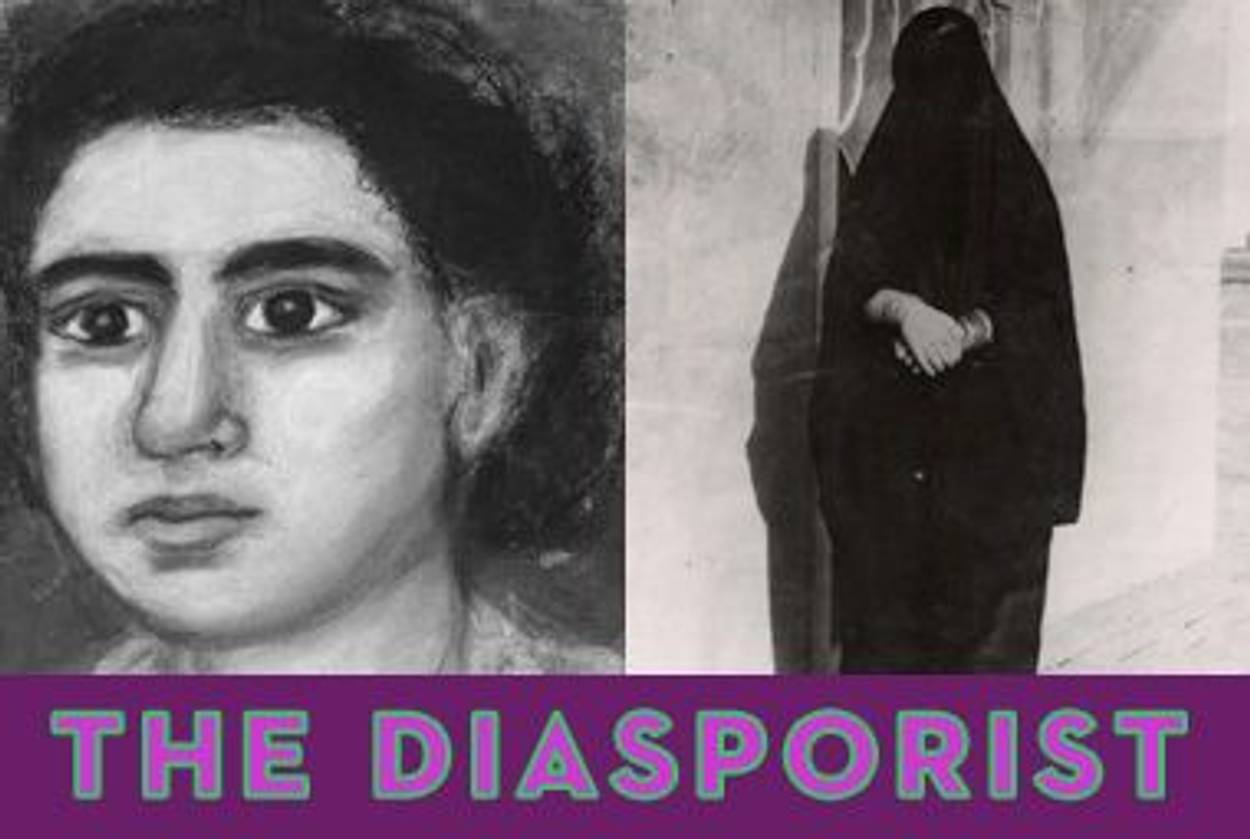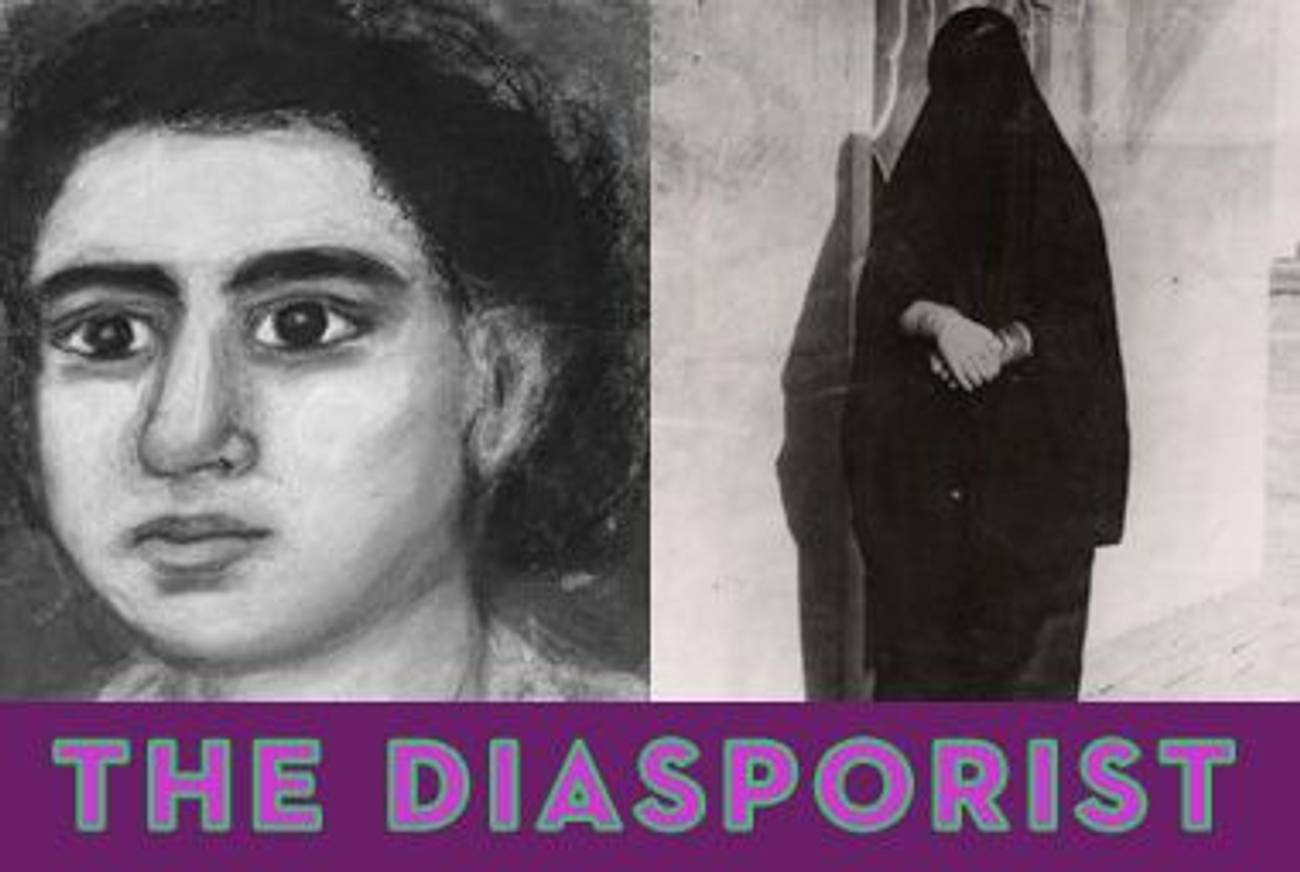Hall of Mirrors
A new book tells the story of a middle-class Jewish girl from Westchester who changed her name, moved to Pakistan, and became a leading voice of radical Islamism




Deborah Baker’s The Convert: A Tale of Exile and Extremism tells the strange and haunting story of Margaret Marcus, a middle-class Jewish girl from a Westchester suburb who, in the early 1960s, changed her name to Maryam Jameelah, moved to Pakistan, and became an important voice of radical Islamism. It’s a philosophical puzzle box of a book, and the most unsettling thing about it is the lingering suspicion that this troubled young woman did not necessarily make a mistake when she traded postwar America for purdah. Jameelah’s ideology was harsh, even totalitarian. She consorted with vicious anti-Semites and lambasted feminism in the name of a vision of womanhood that she herself could never live out. And yet her Islamic milieu sustained her in a way that the liberal Jewish world she was born into could not. To read The Convert is to begin to understand the appeal of that world to someone at sea in ours.
Baker has written three previous books, including In Extremis: The Life of Laura Riding, a Pulitzer finalist, and The Blue Hand: The Beats In India. The latter book had been completed but not yet published when Baker, searching for a new subject, stumbled across Jameelah’s papers in the New York Public Library’s Manuscripts and Archives Division. “[I]t was the dissonance of a lone Muslim name, among the commonplace Jewish and Christian ones, that waylaid me,” wrote Baker. Inside the archive’s boxes, she found Jameelah’s books, her impressive early artwork—she had briefly studied with George Grosz at the Arts Students League—and, most important, a trove of letters that seemed to map out their author’s bizarre journey.
But as Baker would discover, Jameelah was an utterly unreliable narrator, and her letters were often deliberately misleading. As a biographer who relies on archives, Baker grew increasingly unsettled as she realized just how untrustworthy the record Jameelah left really was. “That was really devastating to me—it made me realize how much faith I have in archives to be truthful,” Baker says over brunch in Fort Greene, Brooklyn, where she lives with her husband, the novelist Amitav Ghosh. “And of course that’s ridiculous. People lie in letters all the time.”
Her challenge, then, was to construct the book in a way that mimics her own process of discovery. To do so, she adopted a daring, unconventional narrative method—just how unconventional isn’t clear until the very end. Some readers will object when they realize the liberties she has taken with some of her sources, but her approach succeeds in creating a hall of mirrors that forces the reader into constant reassessments. “The form of the book is where the meaning is,” Baker says. “This is really about making narrative sense of a life.”
Not that Jameelah’s life ever makes complete sense. Growing up in the 1940s and 1950s, Peggy Marcus was an awkward, outcast, agonizingly sensitive girl haunted by the legacy of the Holocaust. Like another semi-famous Jewish convert to Islam, Lev Nussimbaum—subject of the best-selling The Orientalist—she initially lionized Arabs out of a sort of Zionist pan-Semitic solidarity. “I am convinced that the Jews and Arabs will cooperate and together create a new golden age such as occurred in medieval Spain,” she wrote at one point.
Of course, that didn’t happen, and the wars that followed Israel’s creation drove her to despair. Partly, like other Jewish critics of Israel, she recoiled at the chasm between her parents’ civil rights liberalism and their anti-Arab racism. “At Smith College, Mother learned to abhor race prejudice,” she wrote. “Not only does she believe that Negroes deserve complete equality of opportunity, she also feels that social intermingling is acceptable and to be encouraged. … So why are the Arabs any different from Negroes?”
In some ways, Jameelah seems like the archetypical self-hating Jew, someone whose qualms about Israel barely mask darker and more destructive impulses. But this doesn’t explain why she didn’t simply become a radical leftist—a natural trajectory for an alienated girl like her. That’s where religion came in. As a girl, Jameelah had a fierce spiritual hunger, which Baker sees as something distinct from mere neurosis. In her assimilation-minded, Ethical Culture family, such impulses had nowhere to go. “There was no language to describe what she was going through, which was a spiritual crisis,” says Baker. “She had a huge desire for a religious life.” Had Jameelah’s parents sent her to a rabbi instead of a shrink, Baker suggests, things might have gone very differently.
And yet, reading the book, one wonders where the line between spiritual crisis and nervous collapse really is. As The Convert proceeds, the extent of Jameelah’s mental instability becomes increasingly clear. By the time she sails for Pakistan, she was barely functional. Her exasperated parents had cut her off, and she couldn’t support herself. Unattractive and terrified of sex, she had little prospect of ever finding a husband. So, when the Pakistani cleric Mawlana Mawdudi invited her, a Muslim sister marooned among the infidels, to join his family, it was a lifeline.
Jameelah had corresponded with a number of prominent Islamists, including Said Ramadan, the son-in-law of Muslim Brotherhood founder Hassan al-Banna, and Sayyid Qutb, the intellectual grandfather of political Islamism. It was Qutb who suggested she write to Mawdudi, the founder of Pakistan’s Muslim revivalist party Jamaat-e-Islami. He was impressed by the clarity and intelligence of her prose and by the zeal behind it. Thinking little of the West and less of Jews, he was easily convinced that her wicked family had cast out their virtuous daughter for no good reason. His shock on meeting the difficult, opinionated, and erratic woman he’d asked into his household was, apparently, profound. So was Jameelah’s realization that even in the idealized community of the faithful, she didn’t fit in.
Still, they kept her. Unlike her own family, Mawdudi and the people around him took care of Jameelah. He had “given her another chance to make a life, a not insignificant gift and perhaps a greater and more profound indictment of the West than anything to be found in his books,” Baker writes. Jameelah eventually became the second wife of one of his associates, and from the safety of purdah, she churned out influential books and articles denouncing Western decadence and celebrating jihad and martyrdom. In exchange for giving up her unwieldy liberty, she found a secure place in the world. And that, of course, is the promise of conservative social orders that value group cohesion over individualism. “There are some people who really can’t deal with too much freedom,” says Baker.
There is, paradoxically, a strong streak of American arrogance in the way Jameelah set herself up as the arbiter of true Islam. In their book Makers of Contemporary Islam, the scholars John L. Esposito and John Voll quote her attacks on Islamic reformers, who she describes as “the mediocre end-product of their circumstances … the result of an overwhelming sense of inferiority which engulfed the East after its humiliating capitulation under the feet of the imperialist West.” Though she was an outsider and a woman, she felt no compunction about dismissing scholars and politicians who’d spent their lives grappling with Islam. This blithe sense of entitlement was itself a result of the imperialist West, though Jameelah seemed oblivious to the irony.
The woman who emerges from Baker’s book is not likable. She is shrill, manipulative, and prudish, though there are glimpses of another, softer, less dogmatic person in the letters she wrote to her parents over the course of three decades. For Baker, trying to inhabit Jameelah was a painful process, and her opinions about her subject remain in flux.
“I was close to a nervous breakdown for a large part of writing this book,” Baker says with a laugh that suggests she’s not being entirely hyperbolic. Jameelah mostly stopped writing in the 1980s, but—at the risk of giving away one of the book’s surprises—Baker eventually discovers that Jameelah is still alive. She’s started sending Jameelah books, most recently the Israeli novella Khirbet Khizeh, about the expulsion of Palestinian villagers during Israel’s creation. They’re not friends, exactly—in fact, Baker found being in the same room with her nearly unbearable. But their lives are now intertwined. “I think I’ll always probably be arguing with her,” Baker says.
Michelle Goldberg is a senior contributing writer at The Nation. She is the author, most recently, of The Goddess Pose: The Audacious Life of Indra Devi, the Woman Who Helped Bring Yoga to the West. Her Twitter feed is @michelleinbklyn.